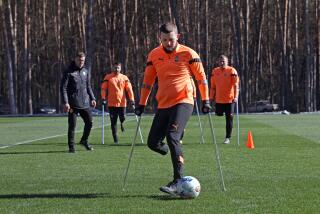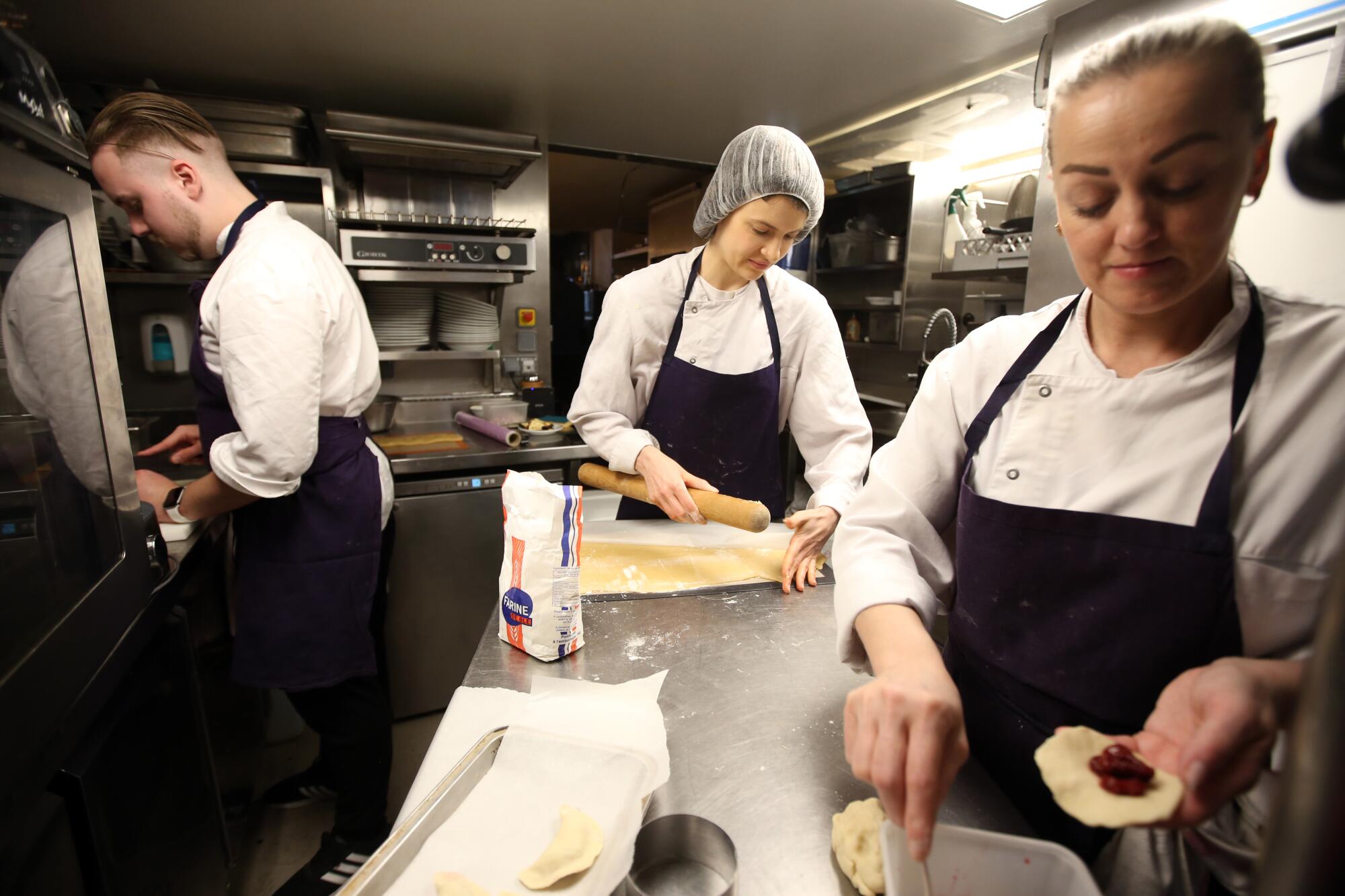
PARIS — Alina Prokopenko, 22, had often fantasized about someday moving to France from her hometown in western Ukraine. When Russia invaded her country, her only concern for her and her family was staying alive. But in a twist of fate, the war has ended up making her dream at least a temporary reality.
“I was dreaming about it before the war,” Prokopenko explained. “When the war began, I had no choice.”
Yuliya Tkachenko, 45, and her daughter Nadiya, 15, were also forced to flee for their lives, escaping to Poland without a clue about where, or how, their perilous journey would end.
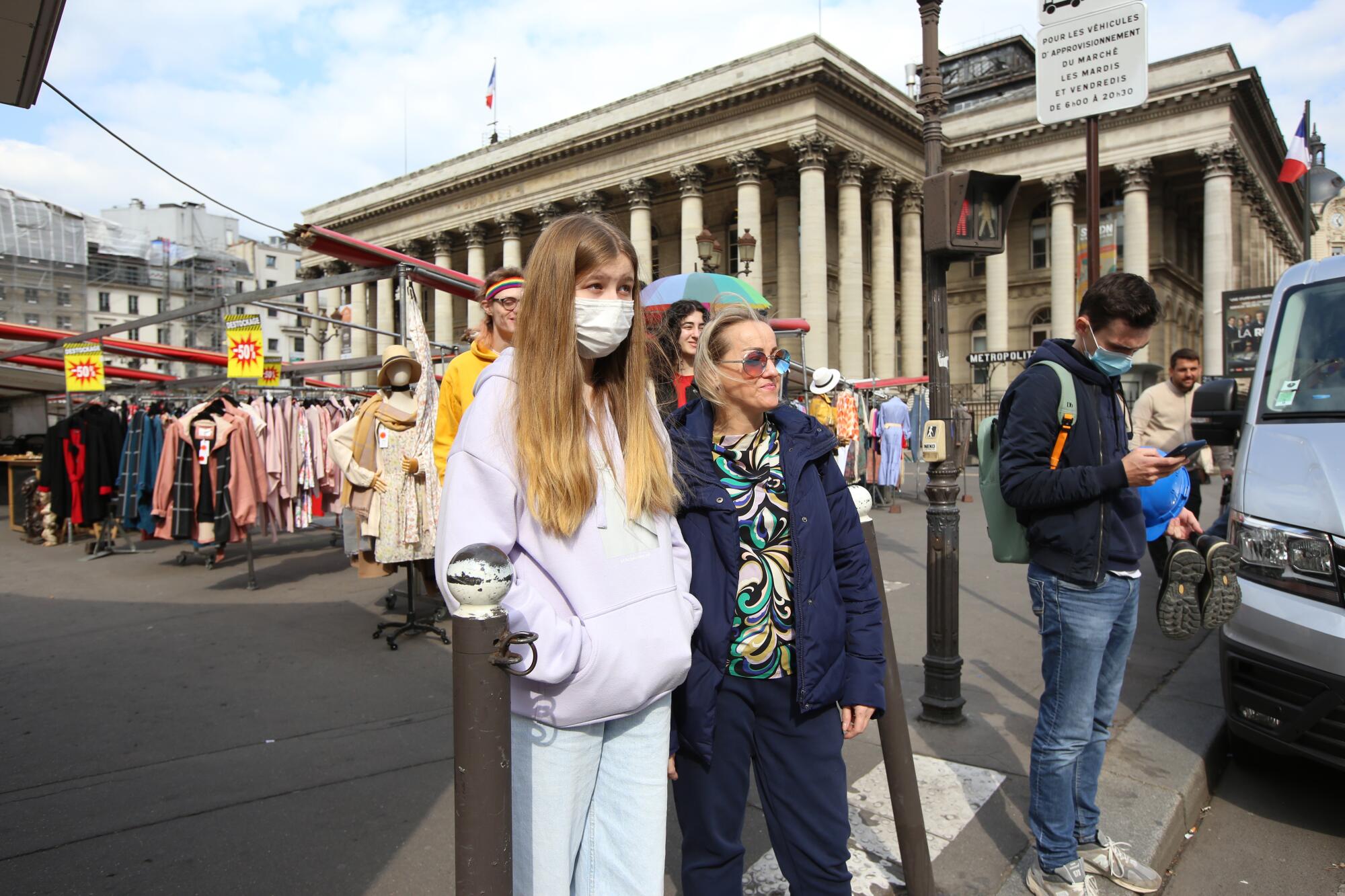
Two months later, the two strangers spend their days together in a cramped professional kitchen making recipes from their homeland just blocks from such iconic Parisian monuments as the Louvre, the Bourse and Place Vendome.
Prokopenko, who had operated an artisan bakery at home in a suburb of Lviv, and Tkachenko, who had no culinary training, are now employed in a tiny, tony French bistro called La Bourse et la Vie, owned by an American chef with a Michelin star who was concerned about the plight of the Ukrainian people, and decided to help.
Perhaps he could serve some Ukrainian items on his menu, the chef, Daniel Rose, thought. But he needed recipes and for that he turned to social media. Prokopenko had been in Paris for only a day when Rose discovered her Instagram page, which included cheesecakes, honey cakes and other traditional desserts.
“He wrote to me that he is looking for some Ukrainians to start the project in Paris to transform his French restaurant to a Ukrainian menu for two months,” she said. “I couldn’t imagine there would be so much attention to Ukraine, and I have that chance to share my culture here.”
At the time, she had been offered a place to stay rent-free for two months with a woman in Paris who had also reached out via social media. Although Prokopenko was nervous about staying with a stranger, the apartment had a view of the Eiffel Tower, and she thought she could trust her and moved in. In preparation for her job interview, she decided to make some cakes to bring with her. She tried to find ingredients as close to those she used in Ukraine. Her poise, baking skills and attention to detail were obvious, and Rose hired her on the spot.
Tkachenko and her daughter, who wound up in Paris in part because Nadiya speaks French and has French citizenship through her father, found housing in a multilevel refugee shelter run by a French migration bureau. She quickly took a day job cleaning an apartment for a Parisian but secured an interview with Rose after a cousin in Ukraine noticed one of Prokopenko’s Instagram posts.
“I knew that when I left his restaurant it would be with that job in my hands,” she recalls, with a determined laugh. Rose also remembers the interview. While her kitchen skills were not up to his traditional standards, Rose said, “I felt like she was cooking for her life.”
So he hired her too.
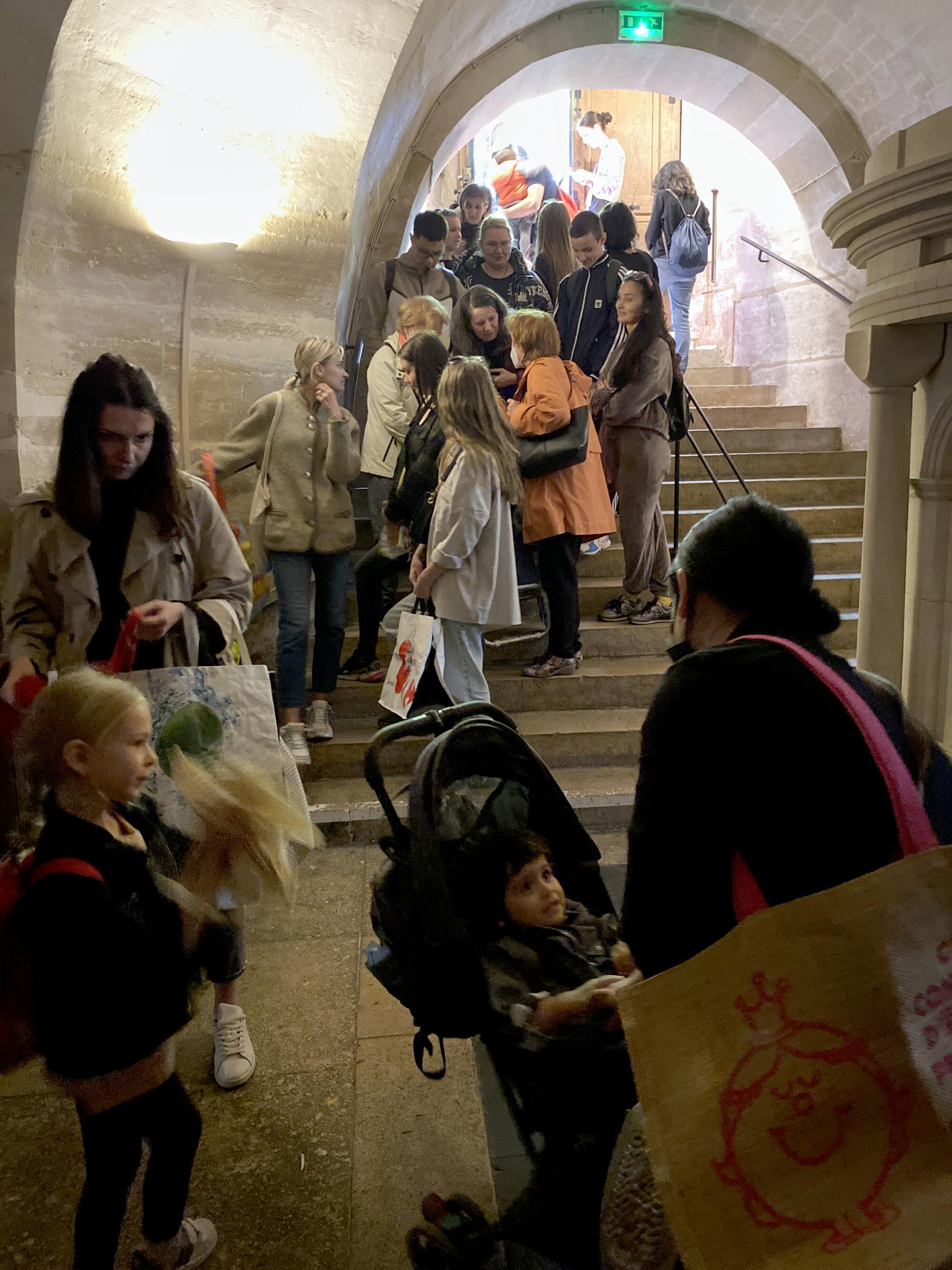
In all, more than 50,000 Ukrainians displaced by the Russian invasion have made their way to France since late February, according to French officials, with both the government and private donors providing assistance for shelter, food, clothing and, in some cases, jobs. Having been granted protected status, Ukrainians in France can travel, stay and work for at least a year.
To accommodate the displaced, gymnasiums have been converted into dormitories, and the doors of schools and day-care facilities have been opened. A government website provides tips on where to find donated food, clothing and toys — including distributions twice a week at the historic Church of St.-Sulpice on the Left Bank, organized with the help of the Cathedral of St. Volodymyr, a nearby Ukrainian Catholic church.
On Wednesdays and Saturdays, hundreds of refugees begin lining up hours prior to the 2 p.m. distribution in the huge basement of St.-Sulpice. Volunteers of many nationalities, some newly arrived from Ukraine themselves, others French citizens from Paris and beyond, get there early to sort the clothing according to size and gender so it can be put on display.
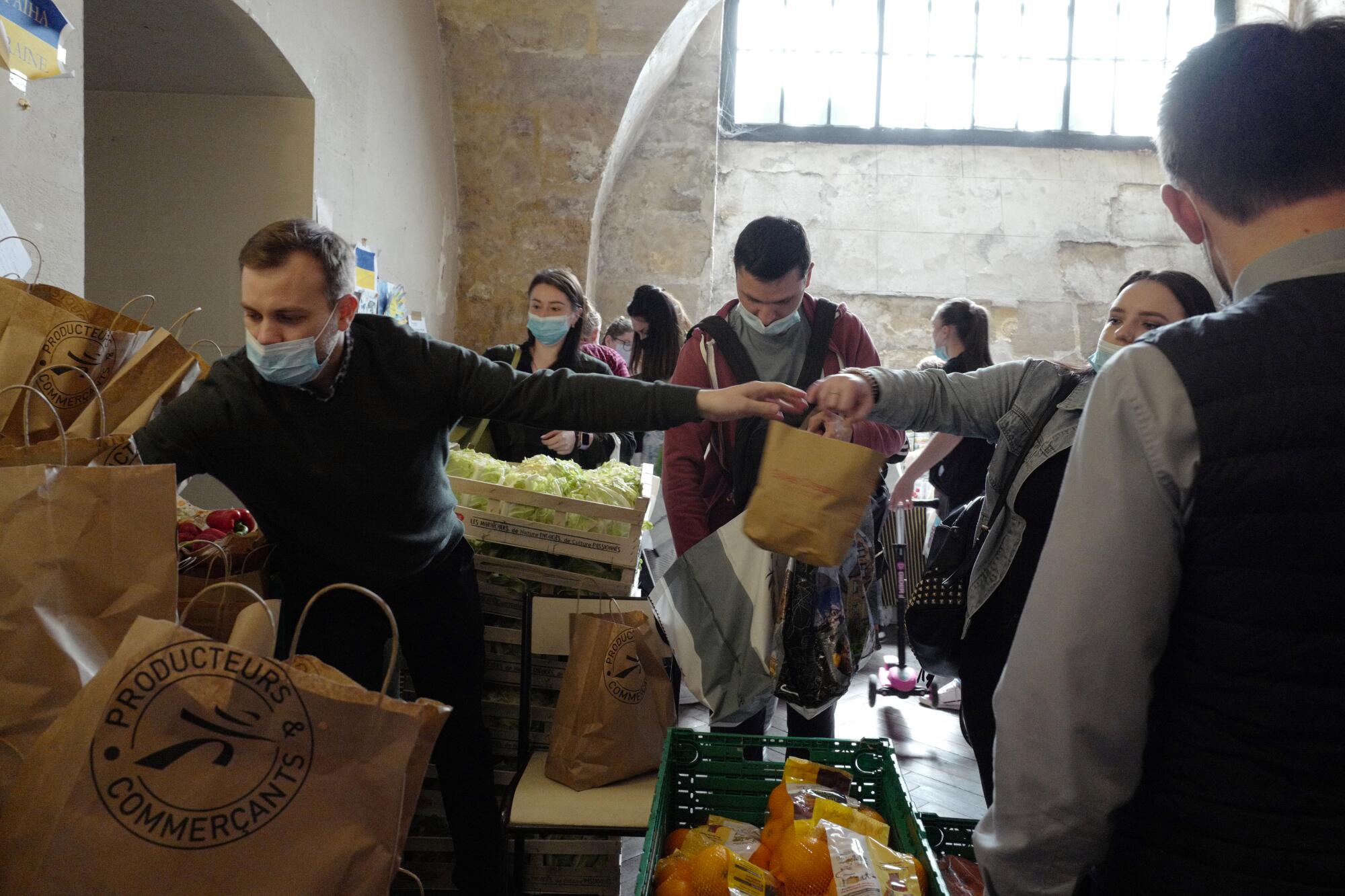
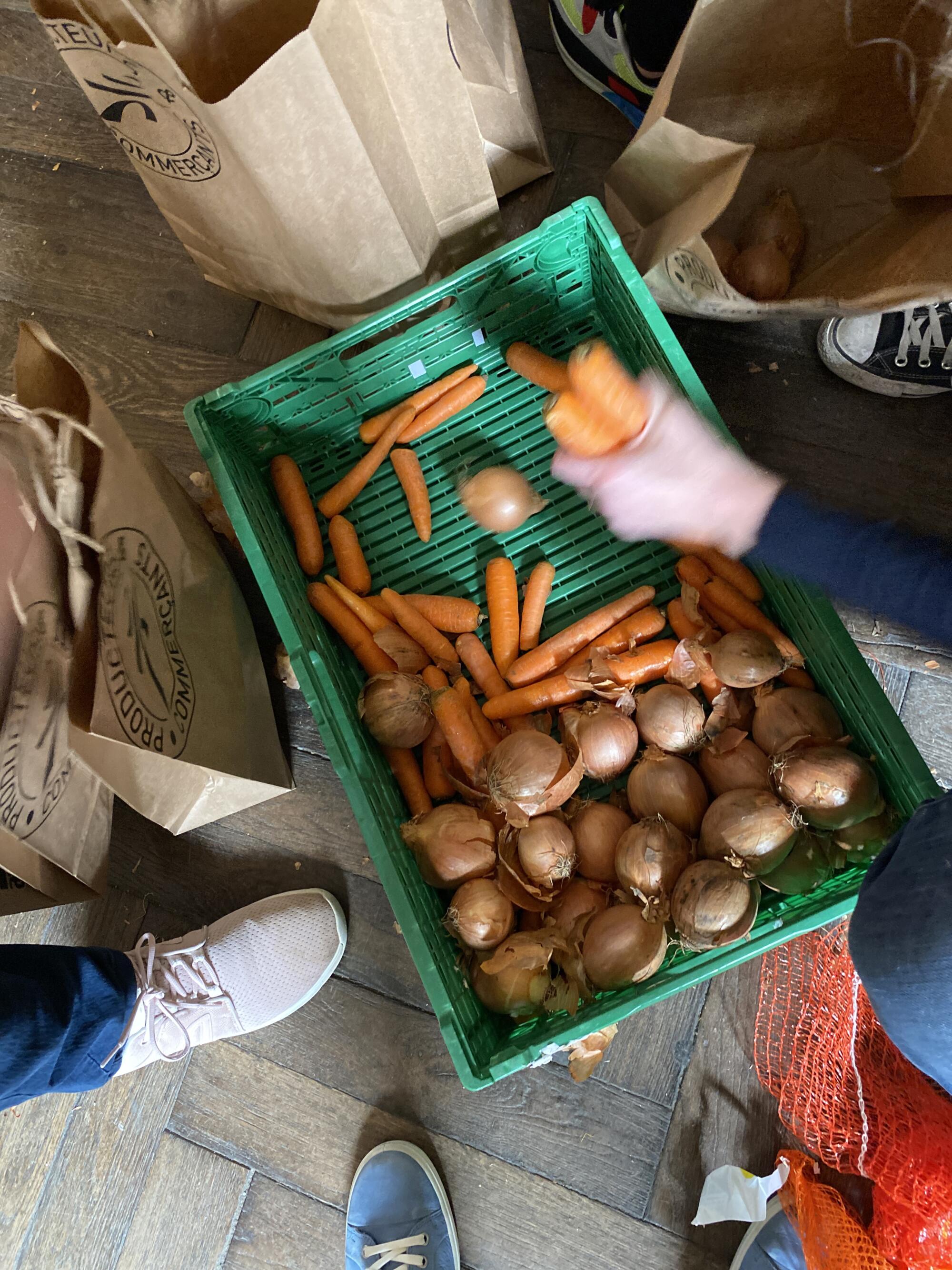
Also available are diapers stacked in neat piles and fresh produce in small bagged portions, enough to make a hearty soup or stew. The distribution lasts for two hours, and hundreds are served, with young children playing in the basement while their mothers scour the items.
A volunteer begins checking passports as refugees crowd around the narrow entry door. An orderly line snakes down the curving stone stairway. Some bring strollers or multiple shopping bags to stow as much as they can carry. Once the doors open, there is a mad dash toward the fresh food.
While the first group goes through the stacked items, the rest wait patiently. On a recent afternoon, a father stuffed an enormous teddy bear for his toddler into his backpack. But the group is mostly women and children, since men are not allowed to leave Ukraine unless they are over 60 or have at least three young children.
Most of those in the line are not as fortunate as Prokopenko and Tkachenko, who are now paid to spend their days immersed in memories of their homeland in a restaurant temporarily renamed Le Borscht et la Vie, run by a well-known chef who also has a restaurant in Manhattan and plans to open another in downtown Los Angeles.
As Tkachenko prepares the sour cherry stuffing for the varenyky (dumplings) on the menu and Prokopenko re-creates a strawberry dessert recipe her grandfather made for her as a child, thoughts of Ukraine are never far away.
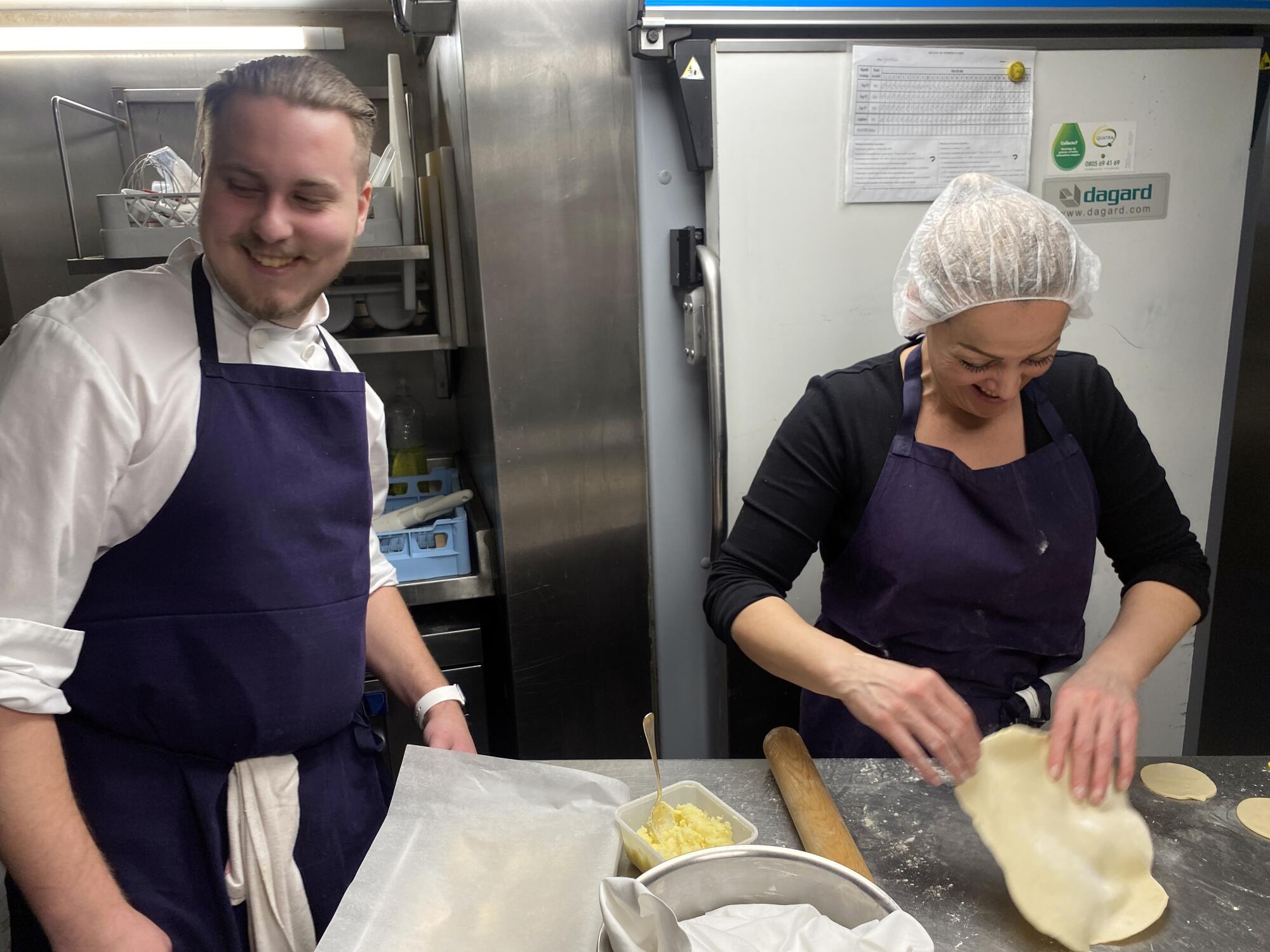
“We have a team spirit,” said Ivan Tabalov, 20, a third Ukrainian member of the kitchen staff who was already living in Paris, studying at the Cordon Bleu when the Russian invasion began.
When Tabalov’s mentors at the school heard about chef Rose’s idea, they set up an interview, knowing the skills he had acquired interning for Alain Ducasse, the renowned French chef, would make him a good candidate to complete the team. After an enthusiastic meeting, Rose decided to replace his French chef with the young immigrant, who now spends a portion of his days filling a huge soup pot with the ingredients for borscht with veal spareribs.
Tabalov said his young wife, living with her mother, at first refused to leave Ukraine because the mother believed Russian propaganda. He remembers being on the phone with his wife and hearing air-raid sirens going off in the background. “I was panicking, not knowing what would happen with her,” he said. Then, the village next to theirs was bombed and destroyed.
That changed his mother-in-law’s mind. They fled, and his wife was able to join him in Paris.
Now he rests more peacefully knowing she is safe here with him. And there is comfort in being with others from his country, making the foods they grew up with.
Together Rose and his grateful new staff have come up with French twists on traditional Ukrainian recipes, setting up a temporary Ukrainian tasting menu for prix fixe lunches and dinners to run through May. Rose says he will keep the borscht on his menu permanently because it is just that delicious.
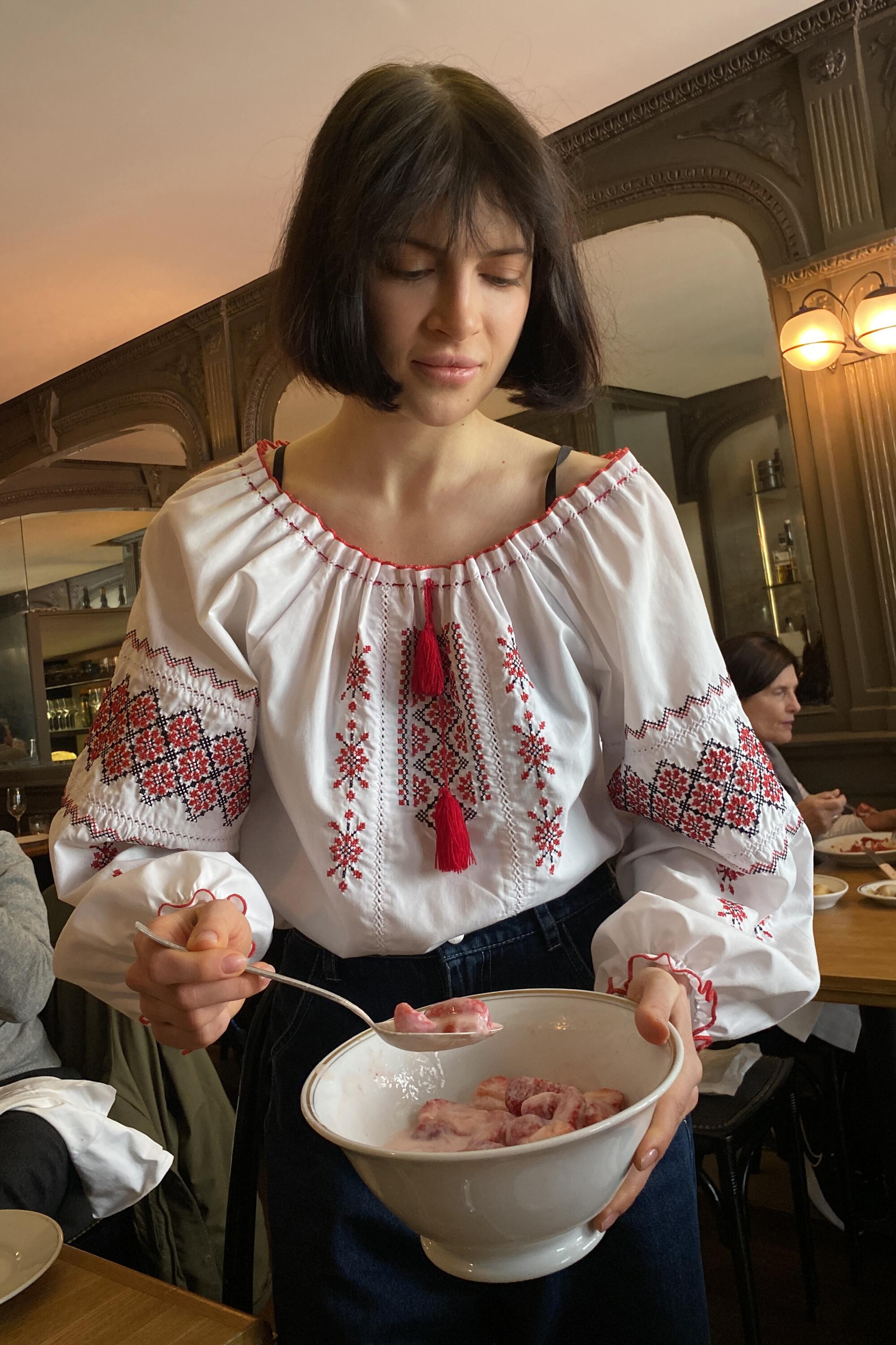
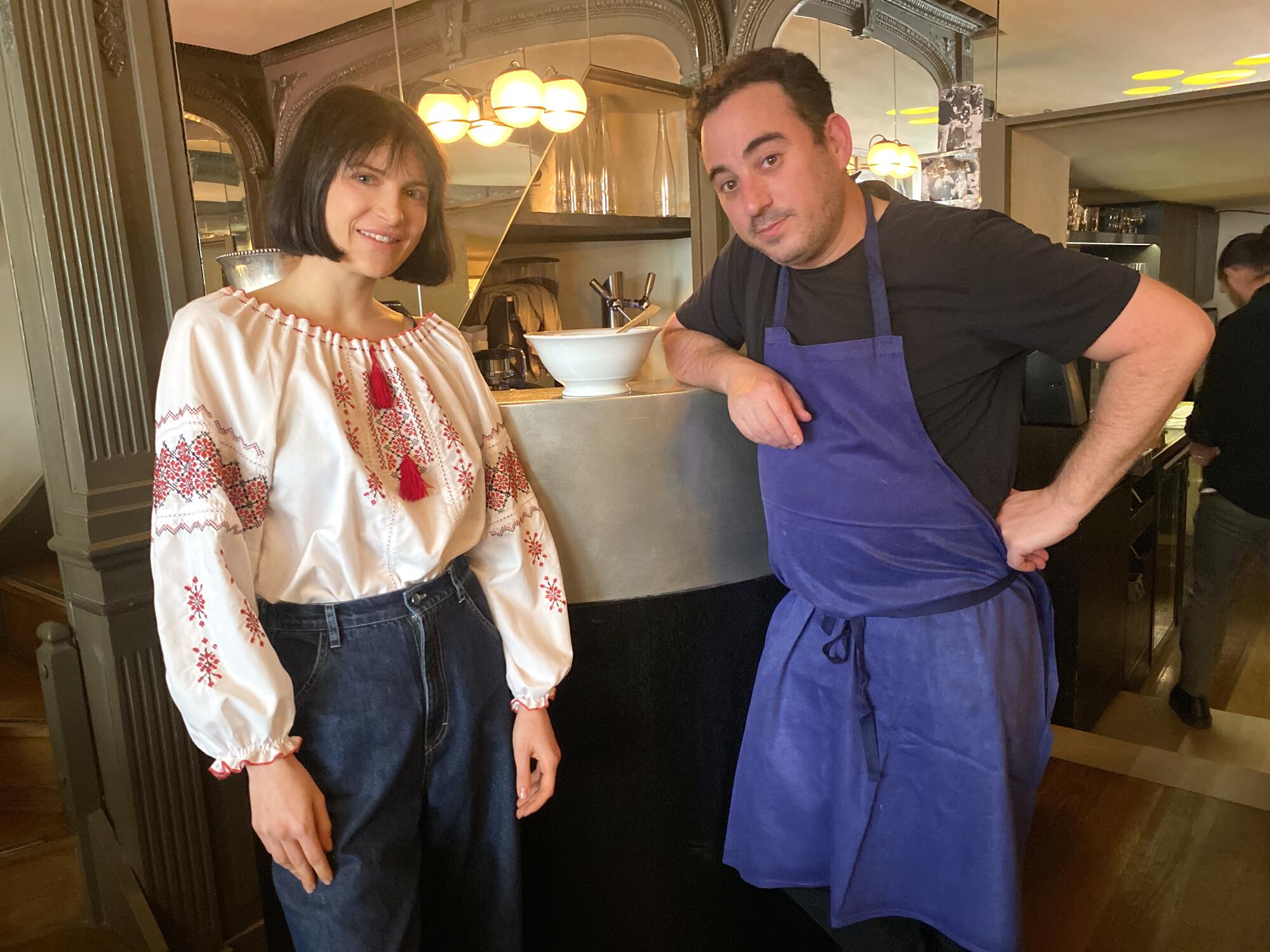
“When Daniel proposed that to me,” said Prokopenko, “I thought, like, wow, it’s not only desserts. I prepared some music that represents our culture, connected to our roots.”
Dressed in a Ukrainian embroidered blouse, she serves lunch and dinner as her playlist sets a mood in the background. “I could not imagine so much support for the Ukrainian people here in Paris,” she said.
Back in the kitchen, preparing for dinner service, the three Ukrainian refugees maneuver around one another in the tiny space, joking and conferring in their native language.
“I was kind of shocked actually to be able to take over the kitchen and do our cuisine,” Tabalov said. “It’s a great opportunity to use my knowledge. We developed a menu with Daniel and started moving forward.”
Tkachenko marvels at the turn of events that landed her in Rose’s kitchen days after the harrowing ride to the border and safety.
“From something so terrible,” she said, “a miracle happened.”
Schneider is a special correspondent.
More to Read
Sign up for Essential California
The most important California stories and recommendations in your inbox every morning.
You may occasionally receive promotional content from the Los Angeles Times.

